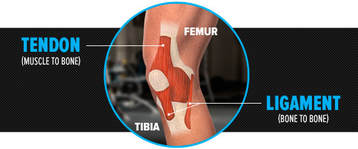Elise SmallNaturopath, Clinical Nutritionist, Personal Trainer, Massage Therapist, Passionate Foodie & Exercise Lover Archives
August 2023
Categories |
Back to Blog
When it comes to healthcare, we often associate certain treatments and therapies with adults. However, osteopathy is an effective approach that can also benefit children between the ages of 5 and 18. By understanding how osteopathy works and the specific benefits it can provide, parents can empower their children to live healthier, happier lives.
Gentle and Non-Invasive Treatment: One of the key aspects of osteopathy is its gentle and non-invasive nature. Osteopaths utilise a hands-on approach to assess and treat the body's musculoskeletal system. For children, this means that there is no need to worry about invasive procedures or excessive discomfort during treatment sessions. Instead, osteopaths employ techniques that are specifically tailored to the needs of young patients, ensuring a comfortable and safe experience. Addressing Common Issues: Children between the ages of 5 and 18 can experience a wide range of physical ailments. Osteopathy can help address many of these common issues, including musculoskeletal pain, growth-related challenges, sports injuries, and postural imbalances. Musculoskeletal pain such as back, neck, or joint discomfort can significantly impact a child's quality of life. Through osteopathic treatment, these concerns can be addressed, providing relief and promoting better movement and function. Growth-related challenges may also arise during this age range. Osteopathy can assist in ensuring healthy development by optimising the body's alignment and enhancing overall musculoskeletal balance. For those involved in sports or other physical activities, injuries can occur more frequently. Osteopathic treatment can aid in speeding up recovery, reducing pain, and preventing long-term issues that may hinder performance. Supporting Overall Well-being: Osteopathy focuses on the body as a whole, considering the interconnectedness of its various systems. By approaching treatment holistically, osteopaths aim to support the overall well-being of children. In addition to addressing physical concerns, osteopathy may also have positive effects on mental and emotional well-being. By alleviating pain, promoting relaxation, and improving body awareness, children may experience increased confidence, reduced stress, and improved concentration. Conclusion: As parents, it is our responsibility to ensure the best possible healthcare for our children. By incorporating osteopathy into their treatment options, we can offer a gentle, non-invasive, and holistic approach to their well-being. Whether it's managing pain, addressing growth-related concerns, or supporting optimal athletic performance, osteopathy can make a positive difference in the lives of children aged 5-18. Consult with a qualified osteopath to explore how this natural therapy can benefit your child and help them thrive. Remember, their health is our priority!
0 Comments
Read More
Back to Blog
Treating Migraines7/11/2023 The following supplements are therapeutic at particular doses that need to be prescribed by a health professional.
Magnesium, B2 (riboflavin), lipoic acid, and CoQ10 have all been studied for their potential benefits in managing migraines. While individual experiences may vary, here are some ways these supplements may help: 1. Magnesium: It is believed that magnesium deficiency may contribute to migraine attacks. Supplementing with magnesium can help regulate neurotransmitter function, reduce inflammation, and help relax blood vessels, potentially reducing the frequency and intensity of migraines. 2. B2 (Riboflavin): Some research suggests that riboflavin supplementation may improve mitochondrial energy production, which could help prevent migraines. It is believed that riboflavin helps in the conversion of tryptophan to serotonin, which plays a role in regulating pain and mood. 3. Lipoic Acid: Lipoic acid is an antioxidant that may help reduce oxidative stress and inflammation, both of which can contribute to migraines. Some studies have shown that lipoic acid supplementation may help decrease the frequency and severity of migraines, although more research is needed. 4. CoQ10: Coenzyme Q10 (CoQ10) is involved in the energy production of cells and has potent antioxidant properties. Research suggests that CoQ10 supplementation may increase energy production in brain cells, reduce oxidative stress, and improve mitochondrial function. Some studies have shown that CoQ10 may help reduce the frequency and severity of migraines. It's important to note that these supplements should be taken under the guidance of a healthcare professional, as they may interact with certain medications or have side effects. Additionally, the effectiveness of these supplements can vary from person to person, so it's always best to consult with a healthcare provider for personalised advice.
Back to Blog
Osteopathy for seniors6/12/2023 Gentle osteopathic treatment can be extremely beneficial for seniors in many ways. Some of the benefits of osteopathic treatment for seniors include:
1. Improved mobility: Osteopathic manipulative treatment (OMT) can help improve joint mobility, reduce stiffness and pain, and increase range of motion. 2. Pain management: OMT can also help manage pain associated with conditions like arthritis, neuropathy, and chronic pain syndromes. 3. Improved balance: OMT can also help improve balance and reduce the risk of falls, which is a common concern among seniors. 4. Improved circulation: OMT can also help improve blood flow and lymphatic drainage, which can improve overall health and well-being. 5. Stress relief: Seniors often experience stress and anxiety related to health issues or life changes. OMT can help reduce stress and promote relaxation. Overall, gentle osteopathic treatment can be an effective way to promote overall health and well-being for seniors, particularly those dealing with chronic pain, stiffness, or mobility issues.
Back to Blog
Osteopathy and naturopathy are both forms of alternative medicine that aim to promote health and well-being. While they have some similarities, there are also distinct differences between the two practices.
Areas of health that both osteopathy and naturopathy may address include:
It's important to note that the scope of practice and treatment modalities may vary depending on the specific regulations and training of osteopaths and naturopaths in different countries or jurisdictions. If you're considering these approaches, it's advisable to consult with qualified practitioners and inquire about their expertise in addressing specific health concerns.
Back to Blog
Researchers have identified three major nutrient deficiencies, that are commonly lacking in modern diets & lifestyle.
1. Vitamin D: This nutrient is produced by the body when the skin is exposed to sunlight, but many people don't get enough sun exposure or have low levels due to other factors such as wearing sunscreen or staying indoors. Low levels of vitamin D have been linked to a range of health problems, including weakened bones, compromised immune function, and depression. 2. Omega-3 fatty acids: These essential fats are important for brain health, reducing inflammation, and supporting heart health. However, many people don't consume enough omega-3s, which are found in fatty fish like salmon, sardines, and mackerel, as well as in nuts and seeds like chia and flax. 3. Magnesium: This mineral is involved in hundreds of enzymatic reactions in the body, but it's estimated that up to 80% of people may be deficient in magnesium. Magnesium is found in foods like leafy greens, nuts, and whole grains, but factors like soil depletion and modern agricultural practices can impact the amount of magnesium available in our food supply. Low levels of magnesium have been linked to a range of health issues, including anxiety, insomnia, and muscle cramps. Sometimes supplementation is required to reach optimal levels with focus on increasing your dietary levels. Talk to your qualified naturopath about the correct dosing and brands, best suited to you.
Back to Blog
How can an Osteopath help you?5/13/2023 If you're struggling with aches, pains, or musculoskeletal issues, you might consider visiting an osteopath. Osteopathy is a form of alternative medicine that aims to improve the health of your body's musculoskeletal system through osteopathic manual therapy. In this blog, we'll discuss how an osteopath can help you and what you can expect from an osteopathy session.
What is Osteopathy? Osteopathy is a type of complementary and alternative medicine that aims to improve the function of your body's musculoskeletal system. Osteopaths believe that the body has the ability to heal itself, and they use their hands to manipulate and mobilize the joints, muscles, and tissues in the body to promote healing. How Can an Osteopath Help You? Osteopaths can help with a variety of conditions, including:
During your first osteopathy session, the osteopath will conduct a thorough assessment of your body to identify any areas of tension or dysfunction. They may ask you to perform some simple movements or stretches to assess your range of motion and flexibility. After the assessment, the osteopath will use hands on techniques focusing on your muscles and joints. They may use massage, stretching, and gentle pressure to improve the function of your musculoskeletal system. The number of sessions you'll need will depend on the severity of your condition and your individual needs. Some people may only need a few sessions, while others may require ongoing treatment. In Conclusion If you're looking for a natural and non-invasive way to improve the function of your body's musculoskeletal system, osteopathy might be the right choice for you. Osteopaths can help with a variety of conditions, including back and neck pain, sports injuries, headaches and migraines, arthritis, and digestive issues. If you're interested in trying osteopathy, be sure to find a qualified and experienced osteopath in your area.
Back to Blog
How can a Naturopath help you?5/13/2023 A naturopath can help you feel better by taking a holistic approach to your health and addressing the underlying causes of your symptoms. Naturopathy is a form of alternative medicine that focuses on natural remedies and the body's ability to heal itself.
Here are some ways a naturopath can help you feel better:
Back to Blog
 Joints are supported by ligaments, our connective tissue required for the health of our hands, wrists, elbows, shoulders, knees and heels. If your joints aren't feeling their best, Boswellia and Bromelain are two nutrients your body could use for stronger ligaments and tendons. Often with tendons and ligaments, they will present with either Tendonitis or tendinitis (inflammation of the tendon or Tendinosis (tiny tears in/around the tendon caused by over use). These two can arise common issues such as tennis elbow, carpal tunnel syndrome, anterior cruciate ligament (ACL) injuries, ruptured Achilles’ tendon, plantar fasciitis, rotator cuff tendonitis, and (indirectly) dislocated joints. This is where your natural lifestyle plan can keep the structure of your ligaments and tendons strong. Specific Vitamins, Minerals and Herbs Boswellia is a traditional botanical herb for reducing pain and inflammation for your musculoskeletaletal system. Pain is unquestionably a huge part of how well your tendons and ligaments support you. When choosing your boswellia extract, ensure you look for a high component of -AKBA, this boswellia extract has been shown to inhibit the 5-lipoxygenase (potent proinflammatory leukotrienes), and reduce the degradation of synovial fluid in the joints. Bromelain is an enzyme found pineapple, popular for reducing pain and inflammation, this enzyme has also been found helpful for wound-healing. Tears in muscle tissue are common with stress on our ligaments and tendons. Including Bromelain into your natural lifestyle plan through diet & supplementation it can assist reducing pain, and lessen the duration of the “inflammatory phase” of tissue healing. With blunt injuries and bruising, bromelain will lessen swelling and pain even if you are on the move or resting. Nutrients for Ligaments & Tendons B Vitamins, Vitamin C, Manganese, Magnesium, and Zinc *Correct nutrient form, brand & dosage can be prescribed by your Practitioner Supplements and more The above nutrients & herbs provide support for your tendons and ligaments and help repair any injuries. Next, is looking at your nutritional lifestyle. Ensure you do not include foods in your diet that cause inflammation and pain. Avoiding refined grains and sugar and include whole foods such as nutritious proteins, vegetables, and fruits. If your job requires repetitive movement such as hand tools or typing set reminders to stop and stretch throughout the day to let your muscles realign. By making a few changes throughout the day and including ingredients that reduce inflammation as well as strengthening tendons and ligaments, the difference will feel amazing. Keeping in mind certain pharmaceutical drugs can damage the health of your tendons. Such as Statins, Aromatase Inhibitors (inhibits oestrogen levels), Antibiotics & Steroid Hormones. At Athletica Health + Wellness your treatments are unique. Practitioner prescriptions can be administered dependant on your presenting concerns.
Back to Blog
Eat Real Food2/12/2017 Perform to you Potential in all aspects of life including training, work & social life
by aligning and managing your lifestyle with the below. Eat real food. Nourish your body. Think quality, not quantity. Heal your gut. Move like your ancestors. Sleep more deeply. Manage your stress. Supplement wisely. Practice pleasure. Industrial food processing has caused ongoing harm to our health since its introduction. The refinement of food has introduced three detrimental foods our health daily. Flour. Sugar. Industrial seed oils. Also included, chemical additives and preservatives, some with known negative effects and others with effects still unknown. New research informs consumers on the harmful effects processed foods have on our health. For example, emulsifiers added to packaged foods such as mayonnaise, bread & ice cream have been demonstrated to proliferate intestinal permeability (leaky gut) an ongoing backlash of inflammation and autoimmune disease. Diet soft drink can increase the possibility of stroke leading to kidney damage, this could be from the phosphoric acid added (acidifying agent for its tangy flavour). “Just eat real food” To avoid the harm caused by processed and refined foods, a good general rule is “if it comes in a bag or a box, don’t eat it.” Flour is used for making bread, pasta, muffins, bagels, crackers, cookies, cakes and a variety of other processed grain products. Sugar is known in obvious foods, like soft drinks and lollies but less obvious foods like burger buns, salad dressing, breakfast cereals, and flavoured yoghurts. The word ‘food’ here, is used loosely. Industrial seed oils—soybean, cottonseed, sunflower, safflower, corn, and canola oils—is nearly in all processed, packaged and refined foods. So what’s wrong with these ingredients? Why is it such a disaster that they now account for more than half of what we eat on a daily basis? There are many reasons why these should not be included in your daily eating. But two that stand out, is the promotion of overeating. Firstly, they are dense in calories with minimal in nutrients, fibre, and water. Nutrients, fibre and water are what make us feel satisfied after eating real food. So when we don’t feel satisfied, we keep reaching for more. The overconsumption of “empty calories” is direct to blame for the epidemic of obesity and metabolic disease we’re experiencing today. Secondly, they advance inflammation, and as we now know inflammation is the origin of disease, from cardiovascular disease to autoimmune disorders to allergies to arthritis. Wheat flour is the most widely used flour and with up to one in ten people have an inflammatory response to one or more components found in wheat. Gluten is the most well-known, but not the only compound. There are lectins like wheat germ agglutinin (WGA), proteins called gliadins and glutenin, an opioid peptide called gluteomorphin, and a substance called deamidated gliadin, which is produced by the industrial processing or digestion of gluten. A gluten intolerance may impact every tissue in the body, such as the brain, skin, endocrine system, stomach, liver, blood vessels, smooth muscles and even the nuclei of cells. It is linked to numerous diseases, like schizophrenia and epilepsy, to Type 1 diabetes and osteoporosis, to dermatitis and psoriasis, to Hashimoto's hypothyroidism to peripheral neuropathy. Sugar increases inflammation in many ways. It interferes with our mineral balance, heightens blood sugar, prompts leaky gut, diminishes our immune system and disturbs the absorption of protein, which our cells and tissues need to function properly. Industrial seed oils are high in a fatty acid called linoleic acid (LA). When LA reaches a point of heat in cooking it is turned into a harmful compound called OXLAMs. OXLAMs cause cellular damage to our body known as “oxidative stress,” this is linked to inflammatory diseases such as Alzheimer’s, fibromyalgia & nonalcoholic fatty liver disease (NAFLD). OXLAMs lead to atherosclerotic plaques which are a leading factor of heart disease. High amounts of linoleic acid are detrimental to health, especially without the consumption of omega 3 fatty acids, found in seafood this leads to a pro-inflammatory environment in the body. What do to: If it comes in a bag or a box, don’t eat it. If you are shopping in a grocery store, pick food from the perimeters but the middle aisles. Base your diet on real, whole foods like meat and fish, fruits and vegetables, nuts and seeds, and starchy plants like potatoes and sweet potatoes.
Back to Blog
Getting your Foundation Right1/27/2017 Perform to you Potential in all aspects of life including training, work & social life
by aligning and managing your lifestyle with the below. Eat real food. Nourish your body. Think quality, not quantity. Heal your gut. Move like your ancestors. Sleep more deeply. Manage your stress. Supplement wisely. Practice pleasure. Getting the foundation (diet) right is critical for setting yourself up for performing at your potential. There are three essentials we need to survive: oxygen, water, and food. Humans can survive only few minutes without oxygen, and only a few days without water. Although without food we can last up to three weeks, it is from the quality of food we put in our mouths that determine if we SURVIVE OR THRIVE. The two types of nutrients in our food are macronutrients, which include protein, carbohydrates, and fat, and micronutrients, these include vitamins, minerals, and other minimal dose compounds necessary for the maintenance of metabolic processes. When discussing the nutrient density within foods the focus is mostly on micronutrients and amino acids. Carbohydrates and fats are vital to health, our body has the ability to synthesise most of the fats it needs from the diet. This is not the case for micronutrients and essential amino acids sourced from protein, these must be taken in from the diet. To function properly we need about forty different micronutrients (vitamins, minerals, and trace minerals) . The importance of getting the foundation right with diet simply comes down to knowing 'Every single process that happens in the body-- from your eye blinking to your heart beating to your brain comprehending this sentence you’re reading—depends upon these micronutrients.' It is known that if you do not obtain quality food, you are not providing your body the essentials to function as it should and disease begins to develop. As nutrients support functioning in the body, deficiencies can impact every cell, organ, and tissue. Nutrient deficiency is linked to many health conditions including: • Weakened immune function. • Premature ageing. • Cancer and cellular damage. • Cardiovascular disease. • High blood pressure. • Lipid (cholesterol) abnormalities. • Depression and anxiety. |
 RSS Feed
RSS Feed


